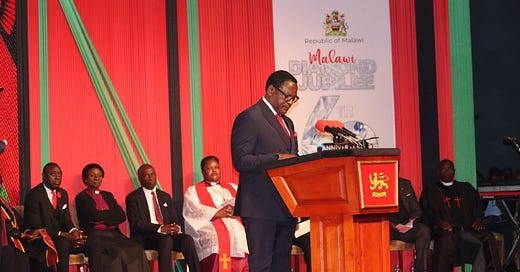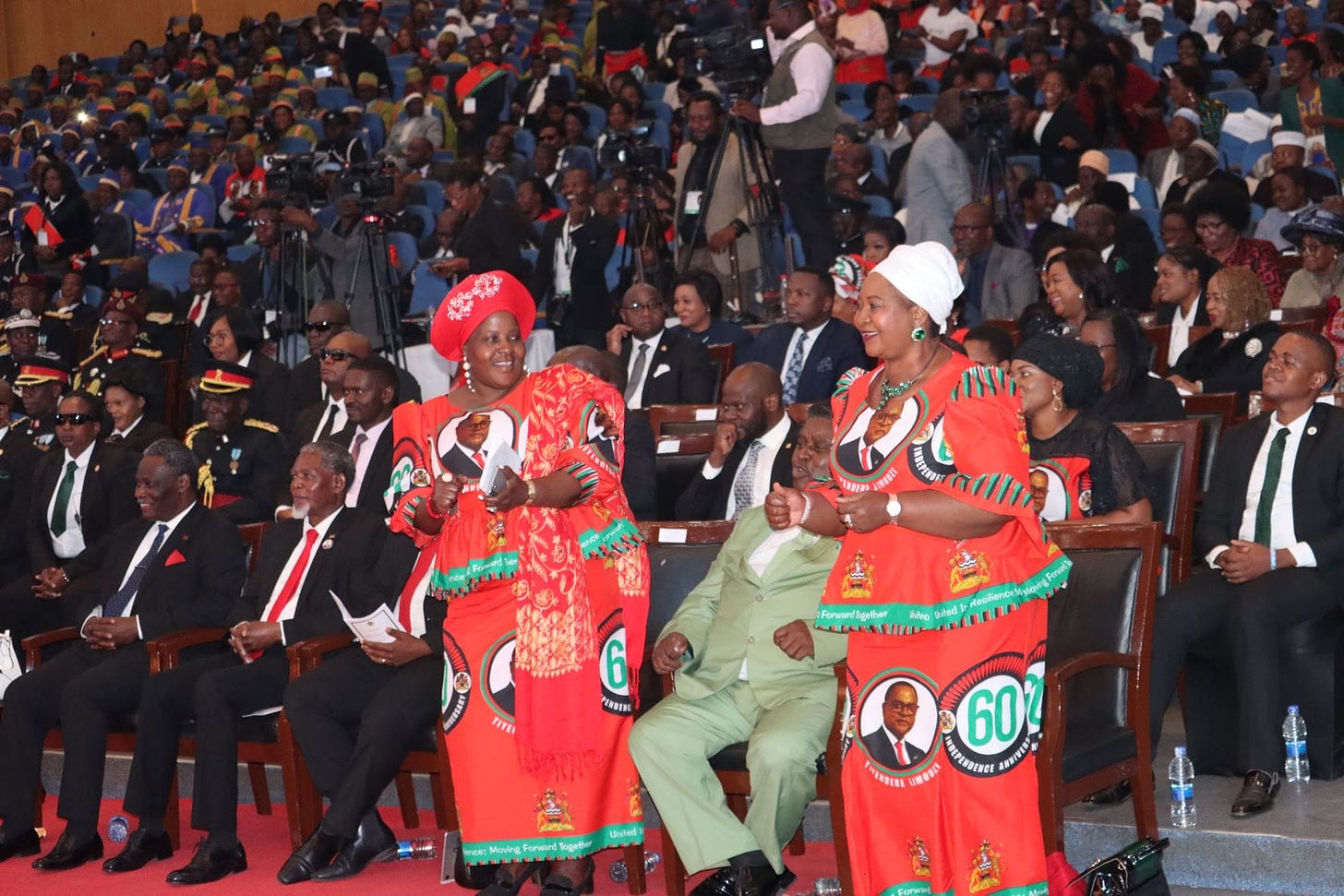Malawi at 60: A nation's sombre reflection amidst trying times
The world will be watching to see if this landlocked nation can navigate the turbulent waters of development and emerge stronger in the years to come.
LILONGWE, Malawi-In a striking departure from the usual fanfare, Malawi's 60th Independence Day was marked not with jubilant crowds and colourful parades, but with a solemn National Service of Worship, writes Winston Mwale.
This pivot, necessitated by recent national tragedies, offers a poignant glimpse into the challenges facing this young democracy in southern Africa.
President Lazarus Chakwera, speaking at Lilongwe's Bingu International Convention Centre (BICC), struck a conciliatory tone in the face of mounting tensions.
His address not only called for national unity but also touched upon a contentious issue that has gripped the nation: the recent arrests related to the plane crash that claimed the life of Vice-President Saulos Chilima and eight others.
In a surprising move, Chakwera expressed displeasure over these arrests, which were made under the country's cybercrime laws. "
This statement puts the president at odds with his own law enforcement agencies, highlighting the delicate balance between maintaining order and protecting free speech in times of national distress.
The arrests of Rumphi East legislator Kamlepo Kalua and human rights activist Bon Kalindo for sharing voice notes about the crash have raised eyebrows both domestically and internationally.
The use of the Electronic Transaction and Cyber Security Act in this context has sparked debate about the limits of free expression in Malawi's democracy.
This tension between security and liberty is not unique to Malawi, but it takes on added significance in a young democracy still finding its footing.
The president's public disagreement with these arrests suggests a potential rift within the government over how to handle sensitive information during national crises.
The interfaith nature of the service, with prayers offered by Christian and Muslim leaders alike, underscores Malawi's religious diversity—a potential source of strength, but also a delicate fabric to maintain in times of stress.
The themes of these prayers—unity, healing, economic growth—read like a litany of the nation's most pressing concerns.
Perhaps most telling was Pastor Esau Banda's exhortation to stand united against "corruption and tribalism".
These twin spectres haunt many African nations, Malawi included, often proving stubborn obstacles to progress.
The fact that they warranted mention in this national ceremony speaks volumes about their perceived threat to the country's development.
As Malawi enters its seventh decade of independence, it faces a crossroads familiar to many post-colonial African states.
The challenges of fostering national unity, ensuring economic progress, and maintaining democratic institutions loom large.
The sombre tone of this year's celebration suggests a nation cognizant of these hurdles, yet the calls for resilience hint at a cautious optimism.
Whether Malawi can translate this moment of reflection into meaningful action remains to be seen.
As with many of its continental peers, the path ahead is fraught with obstacles, but not devoid of hope.
The world will be watching to see if this landlocked nation can navigate the turbulent waters of development and emerge stronger in the years to come.




